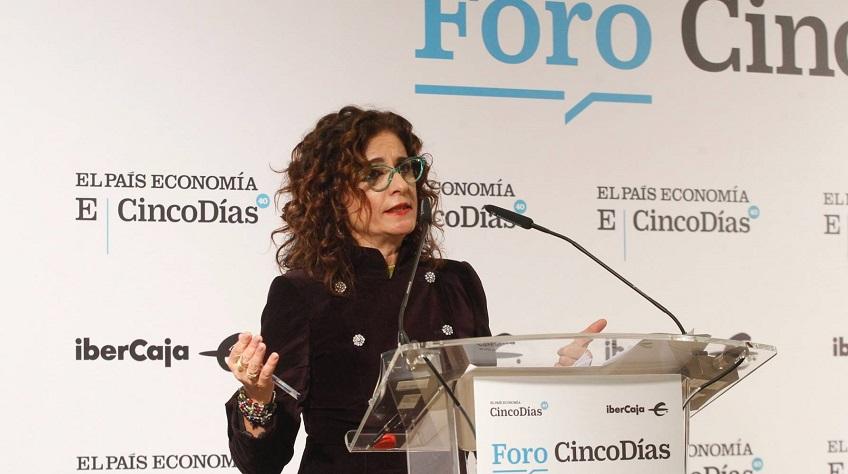News
Spain’s Finance Minister, María Jesús Montero, addresses the Cinco Días Forum
06-11-2018

The Ministry of Finance is anxiously awaiting clarification from the Supreme Court on whether the mortgage-related levy, or Impuesto sobre Actos Jurídicos Documentados (AJD), must be paid by banks or borrowers, admitted Spain’s Minister of Finance, María Jesús Montero. She was addressing the Cinco Días Forum, which is sponsored by Ibercaja. She also said that the autonomous regional governments may be liable for up to EUR 5 billion if the court confirms that banks should pay out – opening the door to mass refunds to taxpayers, with the estimated cost based on the tax over a four-year period.
Montero explained that should the court rule in favour of borrowers, central government would offer help to the regional administrations, would ask Brussels to take any such assistance into consideration to avoid a direct impact on the deficit, and would ask the banking sector to cover the outstanding amount.
The minister also explained that Spain’s internal revenue service is launching a tool to facilitate the return of any income tax collected on maternity benefits, a practice that the courts have ruled against, and that it is set to pay taxpayers back between EUR 1,1 and 1.2 billion euros depending on the number of claims, corresponding to tax returns from the past four years.
The minister also revealed that the Executive had no intention of dropping the threshold for so-called taxation by modules for the self-employed, a measure that had been scheduled for January 2019.
With regard to the budget, Montero said she’d asked the rest of the country's political forces for "dialogue without prejudice" to reach agreements that will allow "the economy to be truly at the service of the people". The minister told the forum that there was “absolutely” no way that the previous government’s 2018 Budget would remain in force and that she was making headway with negotiations on the proposed 2019 Budget, already agreed with Unidos Podemos. She’s seeking the support of the Basque party PNV as well as that of the Catalan separatist parties ERC and PDeCAT, which have insisted that they will not support the budget in protest against the incarceration of their leaders.
The minister also criticized the economic policy of the PP, saying that its fiscal measures had resulted in the loss of EUR 12 billion to the exchequer, the equivalent of the entire budget for science and research, and even education. "What happened in our country is unique compared to other countries. Spaniards have been subjected to an economic policy that has accentuated the harshness of the crisis," she said, before stating that the cuts had not served to reduce debt or comply with Brussels. "It is the policy of the carrot and the stick," she said, asserting that the lesson learned is that "tax cuts do not increase revenues."
"The self-proclaimed economic miracle of the previous government", said Montero, had been a "policy of internal devaluation at the expense of impoverishing workers and taking advantage of the favorable tailwinds" prompted by monetary policy, the fall in oil prices and the increase in tourism. The result, she said, is that "employment has become ever more precarious", and a whole generation of children and young people has been left "without opportunities".
"I do not shy away from self-criticism. I believe that social democracy did not, at that time, live up to our citizens’ expectations," she admitted, blaming this lack of initiative for the fact that voters have turned their backs on European, member state and local socialist parties in recent years.
It may interest you



